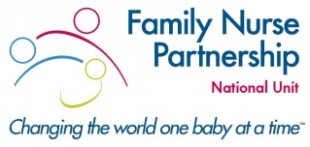 “FNP has helped me move from being a teenager to being a responsible mum” (FNP mum)
“FNP has helped me move from being a teenager to being a responsible mum” (FNP mum)
“I’m going to be the bedrock for my child” (FNP dad)
Strong evidence tells us that teenage parents and their children are at higher risk of poor outcomes, and that low economic and psychological resources can often prevent them from being the parents they want to be. But 20 young parents, speaking to an audience of senior local authority and national leaders at a recent Family Nurse Partnership (FNP) conference, were clear how they aspire for a different life and how they have the confidence and maturity to choose a different path for themselves and their children.
“My family nurse gave me the confidence to carry on with school and finish my GCSEs” (FNP mum)
As humans, we have a powerful intrinsic motivation to protect our young. Family nurses work alongside young mothers and fathers to harness this, breaking the cycle of disadvantage by offering preventive support early in life for babies, and early intervention for first time vulnerable young parents. The evidence supports the belief these FNP parents have in their ability to realise their aspirations. Over 35 years of rigorous research in the US points to significant improvement in outcomes for mothers and children in the short, medium and long term and early evaluation in England is also promising.
So how does FNP work? Not through one magic ingredient, but a powerful and delicately balanced mix of the why (well-grounded theories and good evidence), the what (a well-designed and structured programme using excellent tools, activities and materials) and the how (the duration and quality of a positive, respectful, therapeutic relationship between the client and a highly skilled specially trained nurse, from early in pregnancy until their babies are two).
A key component of this mix is the approach to self-efficacy – the young parents’ belief and ability to plan and achieve their goals. Family nurses support them to develop the resilience, experience, skills and self-belief to be the best parents they can be by helping them to provide safe, warm and responsive care for their babies; become economically self-sufficient by finding employment or returning to education; and to contribute to their communities. Family nurses also support young parents to feel confident about making good use of other services including children’s centres, the two year early education offer, and health visiting once the children reach two years old (FNP is part of the universal plus element of the Health Visiting Action Plan). Neither FNP nor FNP clients stand alone, and close work and integration with other universal and targeted services is vitally important.
Most importantly, family nurses facilitate all this by recognising that young parents are the experts in their own lives, while respectfully exploring alternatives to beliefs, life style choices, and behaviours with them so that they are in a strong position to make informed decisions about what’s best for themselves and their babies.
“We do it our own way, but we’re given the information to do our best” (FNP mum)
For more information visit http://fnp.nhs.uk/

